Ecce Homo
(2008)
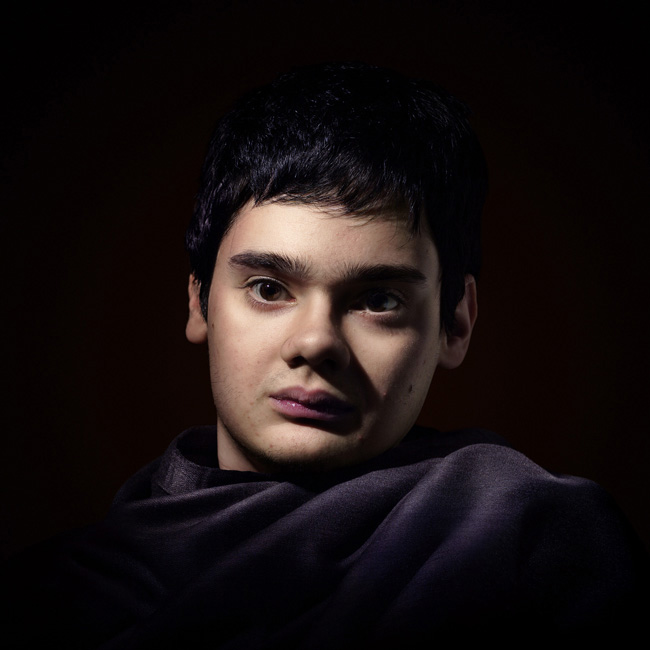
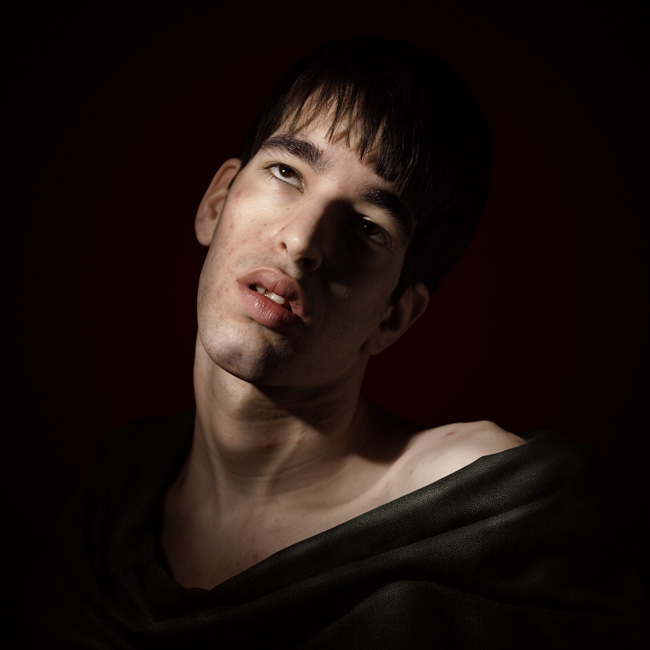
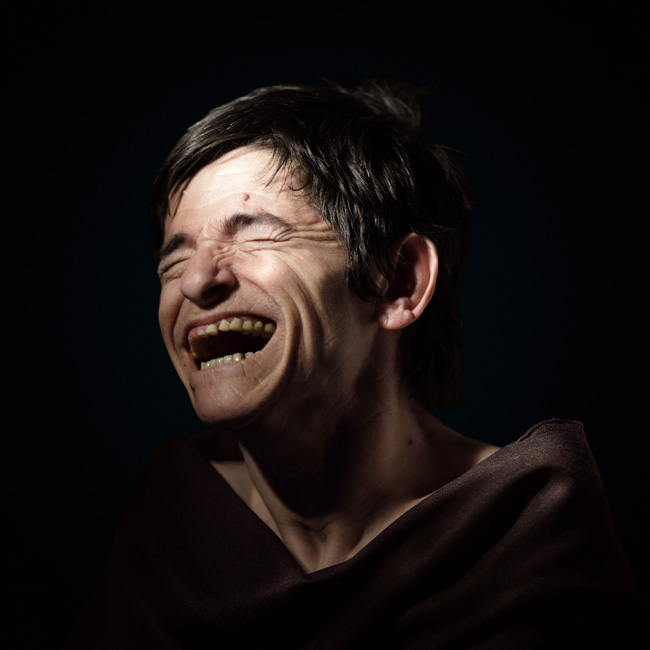

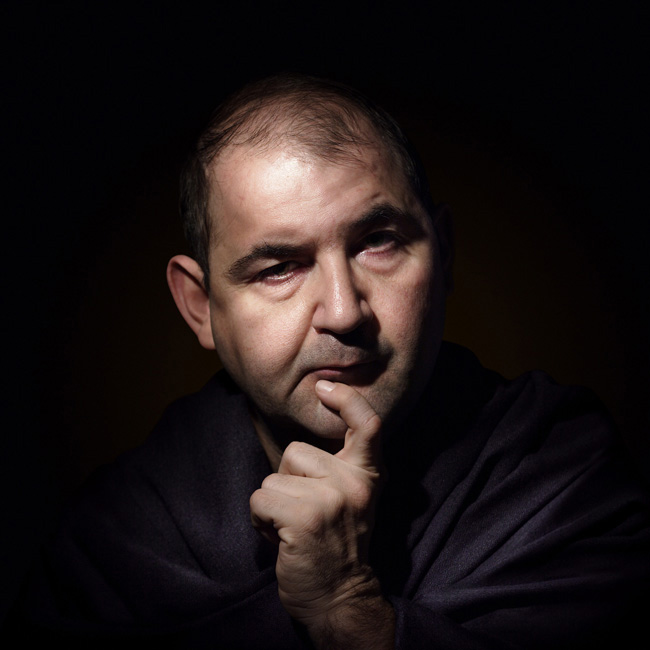


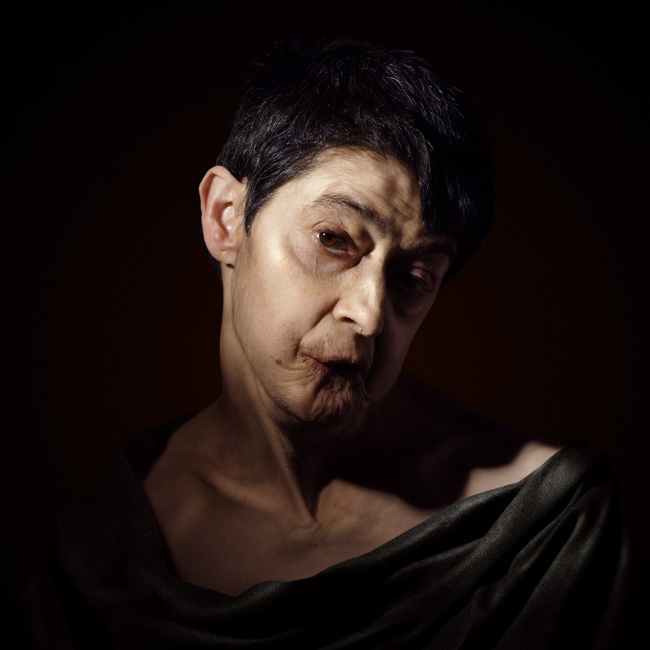
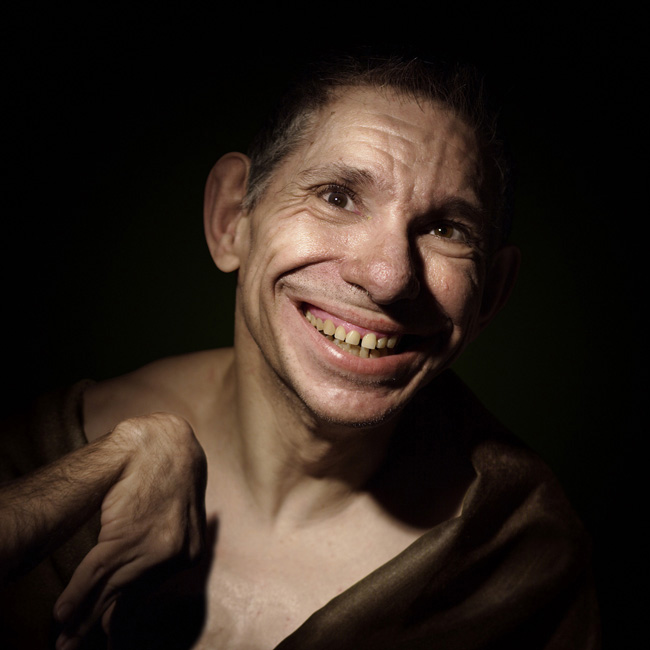
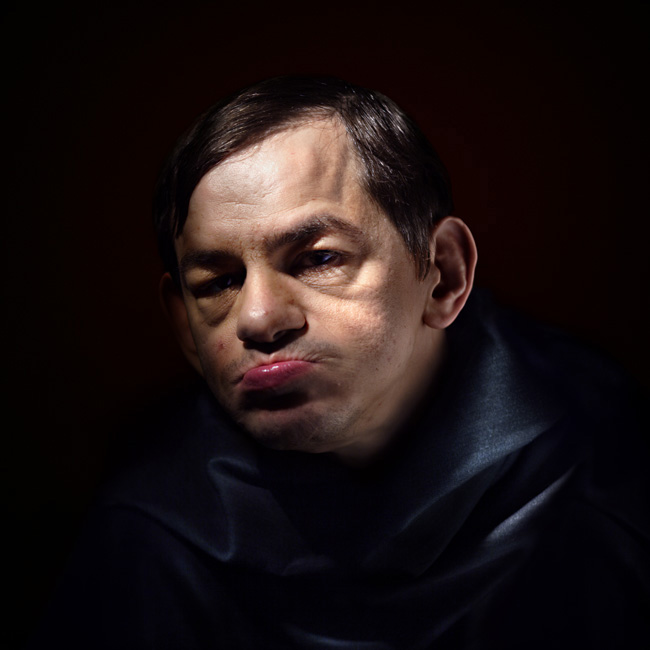
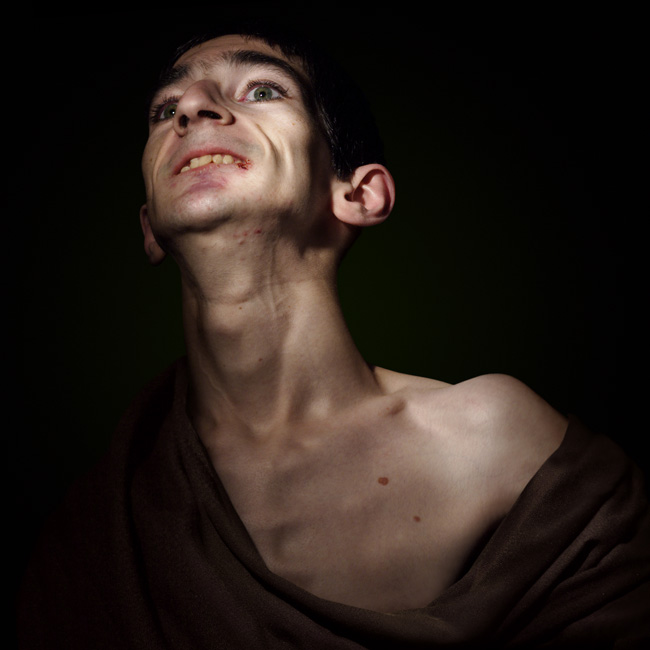


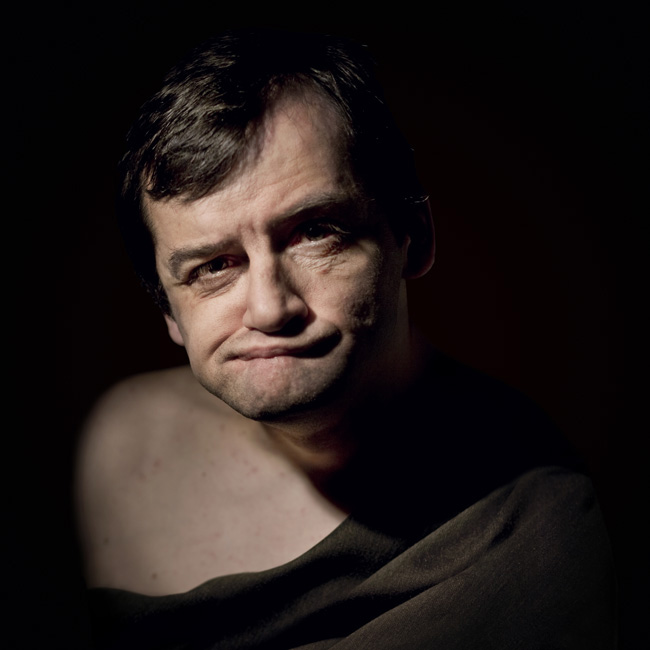
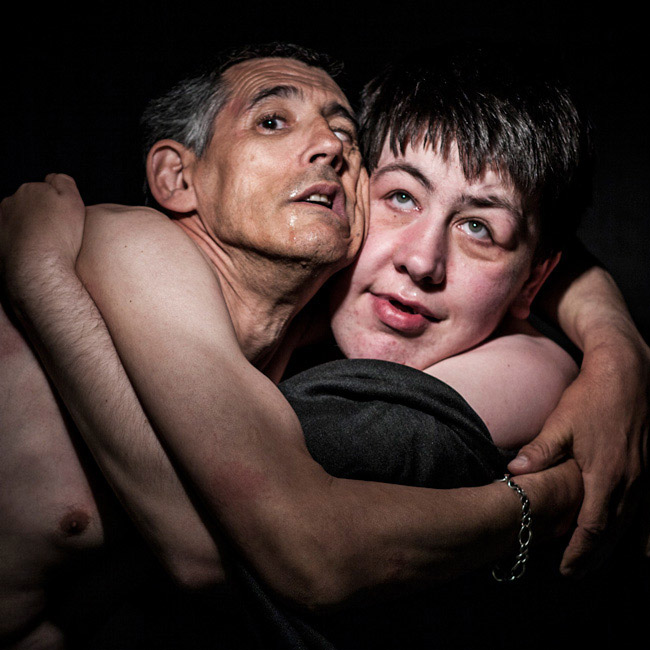
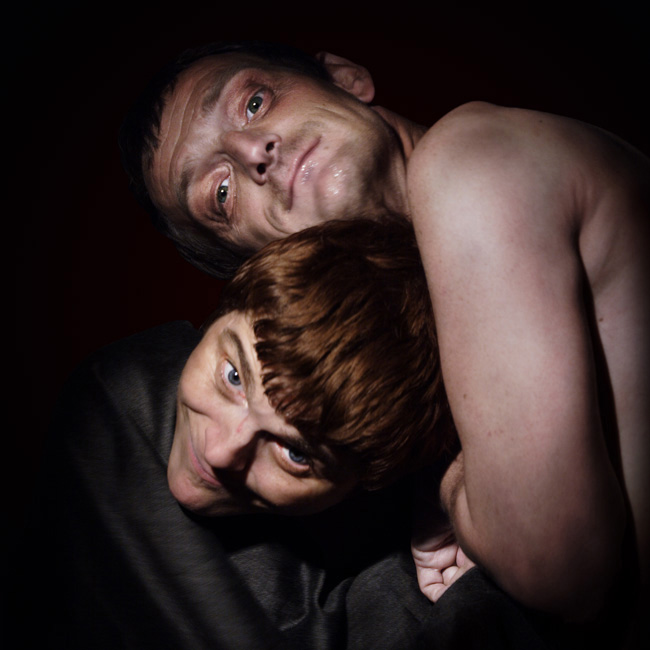
Ecce Homo
[ESP]
Ecce Homo: frase latina que se traduce: Este es el hombre o He aquí el hombre. Se trata, según el Evangelio de Juan (19.5), de las palabras pronunciadas por el gobernador romano Poncio Pilato cuando presentó a Jesús de Nazaret (flagelado, atado y con la corona de espinas) ante la muchedumbre hostil con el objeto de conocer su veredicto final sobre su persona, pues por su parte no veía claro un motivo de condena.
«Ecce Homo” es una serie de retratos a personas con parálisis cerebral, que se detiene en la geografía de cada rostro para mostrar el esfuerzo físico que ellos necesitan para expresarse, ya que uno de los principales problemas de esta enfermedad es el poco control que tienen sobre los movimientos de sus cuerpos. Estos retratos destacan las emociones contenidas, la compulsión en la que se encuentra atrapado cada individuo y la belleza expresiva de sus rostros.
«Mirar sus rostros es una aventura que me transporta a un mundo mágico, ante ellos las ideas preconcebidas se destruyen, en cuanto aparecen me toman de la mano y me llevan a su bosque encantado, me enseñan su idioma, sus costumbres y sus leyes. Es fascinante cómo la vida en una de sus más alegóricas encarnaciones se manifiesta libre y sin tapujos, y como frente a ella muchas veces somos incapaces de sostenerle la mirada.”
[ENG]
Ecce Homo: A Latin sentence which means : This is the man or Behold the man. According to John the Evangelist (19.5), these are the words spoken by the Roman governor Pontius Pilate when he presented Jesus of Nazareth (whipped, bound and with a crown of thorns) to the hostile crowd in order to deliver their final verdict on this person, because he saw no clear cause for condemnation.
“Ecce Homo” is a series of portraits of people with cerebral palsy based on the geography of each face to show the great physical effort needed just for simple expressions. One of the main problems with this disease is the limited control of movement. These portraits call your attention to their hidden emotions, their feelings of being trapped within their reactions and their beautiful facial expressions.
«In front of them, the preconceptions were destroyed, everytime they showed up they held my hand and took me to their enchanted forest, taught me their language, their habits and their laws. It is magical how life manifests itself freely and openly in one of its allegorical incarnations, and how we are often unable to maintain our gaze on it. «

